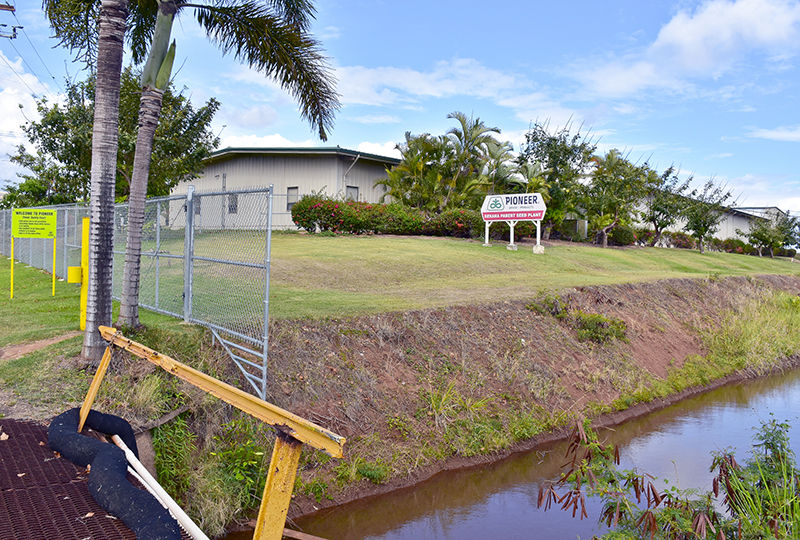LIHUE — Global seed giant DuPont Pioneer is shuttering its Kekaha facility and serving pink slips to 34 workers in a move company officials say will help streamline operations. The closure comes as a first step in the company’s plan
LIHUE — Global seed giant DuPont Pioneer is shuttering its Kekaha facility and serving pink slips to 34 workers in a move company officials say will help streamline operations.
The closure comes as a first step in the company’s plan to consolidate its Hawaii seed operations into one location in Waialua on the North Shore of Oahu, spokeswoman Laurie Yoshida told The Garden Island.
The company will continue to operate its 1,500-acre Waimea Research Center, which employs more than 100 workers.
“We are proud of the 47 years in Kekaha and are confident in our global seed production network’s ability to continue to provide quality seeds for farmers everywhere,” Yoshida said in an email Thursday. “There have been advances made in our production capabilities and we are taking advantage of the efficiencies created and streamlining our operations.”
The Kekaha facility focuses on parent seed operations, where the initial seeds used to create hybrids are grown.
The news comes two weeks after a federal court ruling pegged Pioneer for failure to follow generally accepted agricultural and management practices, resulting in the spread of red dust onto residential properties downwind of its farm in Waimea. Pioneer now owes more than a half million dollars to 15 Waimea residents who sued the company for lack of enjoyment of their homes.
Yoshida said the verdict had no influence on the Kekaha facility closure. No decision has been made regarding whether the company will appeal the ruling, she added.
Operations at the Kekaha facility came to a halt Wednesday, but employees will be retained for an additional two months. The affected workers are all full time, some hourly and some salary, but all with benefits.
The company does not disclose pay ranges, Yoshida said.
Layoffs are effective in July for all but 11 employees who will help transport equipment and prepare the 3,000 acres of leased land to be returned to the landowner, should that be what company officials decide to do. Pioneer’s Kauai footprint stretches from Lihue to Kekaha on land owned by Grove Farm, Alexander & Baldwin and the state Agribusinesses Development Corporation. The company is still evaluating its land needs and options, Yoshida said, but will work with the landlords to meet contractual obligations before decamping.
Kauai Economic Development Director George Costa called the Pioneer closure a “blow to west Kauai,” saying the local agriculture industry is ill-equipped to recover from what he estimates will amount to a 6 percent slash in ag jobs.
All told, Kauai has about 30,000 jobs and the agriculture industry holds claim to 600, or 2 percent of them, he said.
“Thirty-four jobs out of 30,000 may not seem like a lot, but it represents 34 incomes that affect an average of four other people from a family perspective,” Costa said.
He noted that the Pioneer layoffs come on the heels of job losses at other companies including Syngenta and Island Air.
Mayor Bernard Carvalho Jr., said the Office of Economic Development is working closely with Pioneer to help affected employees obtain unemployment benefits and find work.
“Agriculture is one of the industry clusters that was identified for growth in the Kauai Economic Development Plan, and we will continue to support efforts to increase sustainable agriculture as an economic base on the island,” he said in a prepared statement.
Kauai County Councilman Gary Hooser, who has been at the forefront trying to regulate GMO and seed industries on Kauai, said he hopes the company will demonstrate they are good neighbors by taking care of the laid-off employees.
“Any time jobs are lost that impacts individuals and families, so my hope it that they will find new employment and that the company will take care of them appropriately,” he said. “I’m also hoping that Pioneer will be responsible for restoring the soil and field to a condition that allows conventional crops to be grown.”


